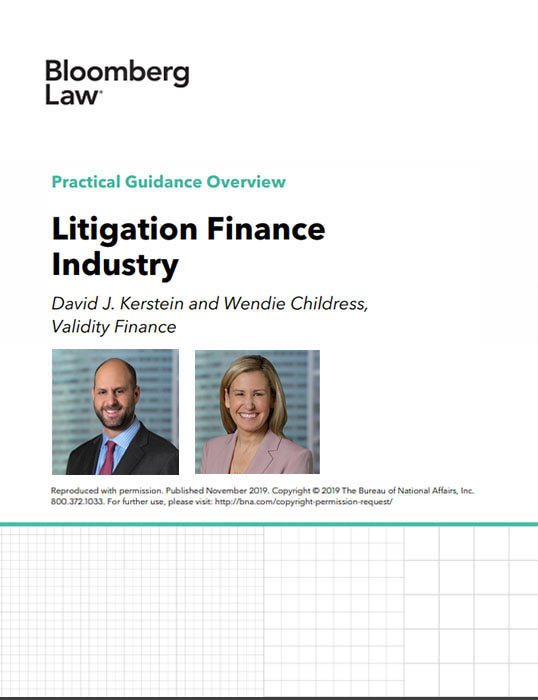November 18, 2019
Practical Guidance, November 2019
By David J Kerstein and Wendie Childress
Reprinted from Bloomberg Law Litigation Finance in Focus
 According to the World Justice Project's 2019 Rule of Law Index, the U.S. is ranked 99th out of 126 countries on “accessibility and affordability of civil justice.” To address this problem, litigation finance has emerged as a significant innovation in civil litigation that aims to solve pressing issues of cost and fairness in our civil justice system.
According to the World Justice Project's 2019 Rule of Law Index, the U.S. is ranked 99th out of 126 countries on “accessibility and affordability of civil justice.” To address this problem, litigation finance has emerged as a significant innovation in civil litigation that aims to solve pressing issues of cost and fairness in our civil justice system.
What is Litigation Finance?
Litigation finance encompasses any transaction in which a legal claim is used as collateral to secure financing from an outside party. The financing party (or funder) provides capital to the claimant in exchange for an interest in the outcome of the case. Financing is usually provided on a non-recourse basis, meaning that the funder receives a return only if the case is successfully settled or results in a collected judgment. If the case is unsuccessful, the claimant has no obligation to repay the funder.
The term “litigation finance company” typically refers to companies that have capital committed from investors to invest primarily or solely in litigation.